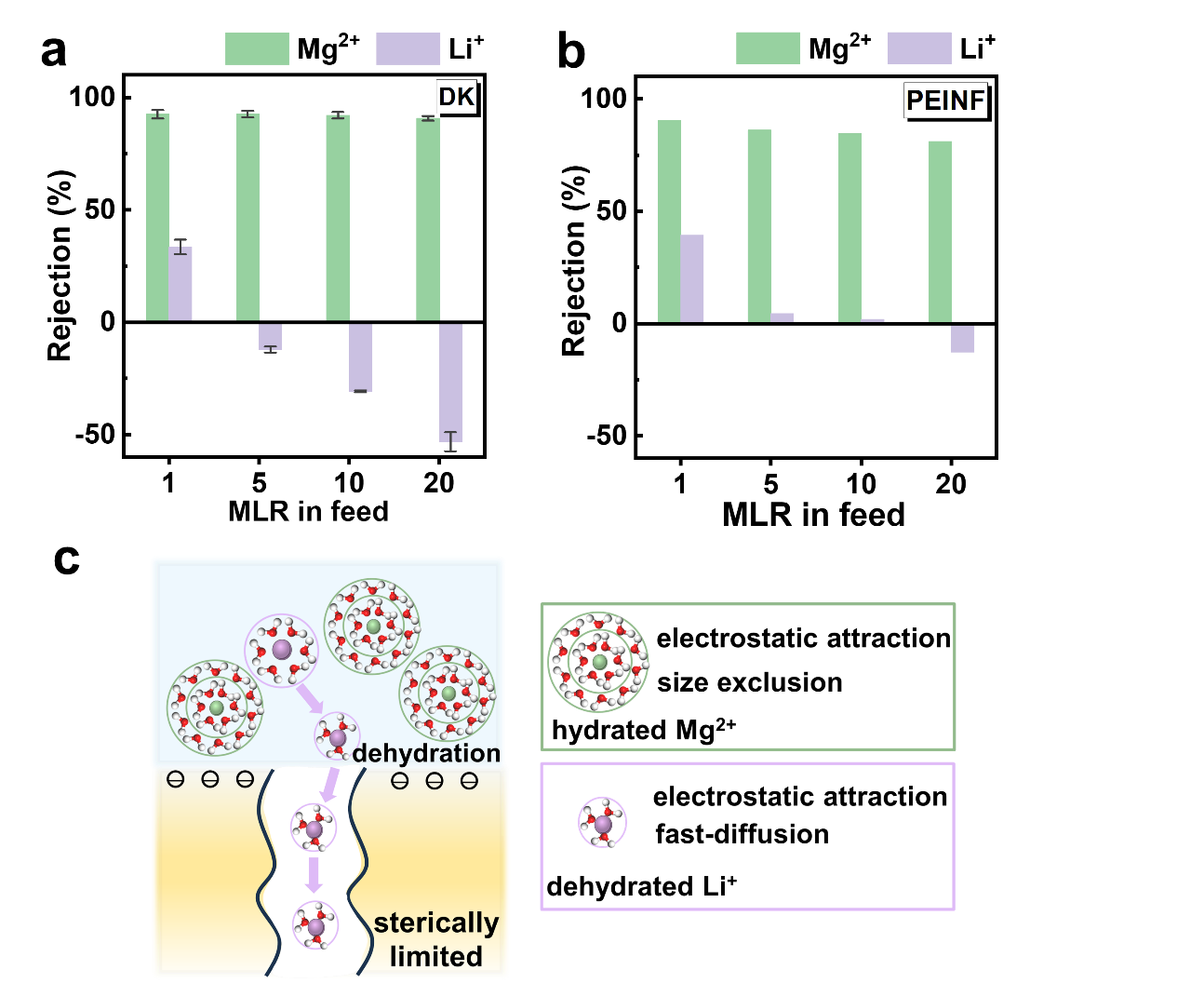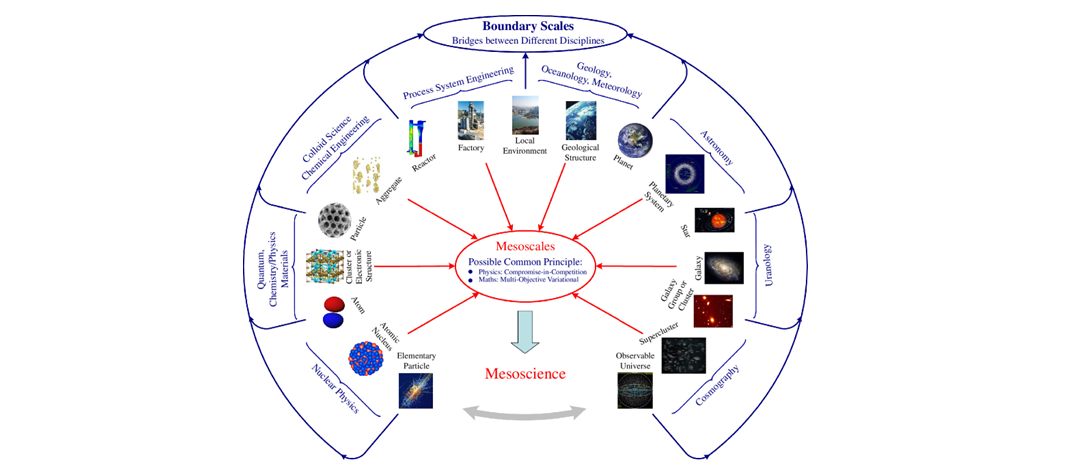A research team led by Prof. WAN Yinhua from the Institute of Process Engineering of the Chinese Academy of Sciences has uncovered a surprising new mechanism that fundamentally alters our understanding of ion transport in nanofiltration (NF) membranes and provides critical insights into improving lithium recovery from high-magnesium brines.
The findings were published in Nature Communications on June 1 (DOI:10.1038/s41467-025-61336-6).
For years, scientists believed that positively charged NF membranes should be more effective at separation of lithium (Li⁺) and magnesium (Mg²⁺) ions than negatively charged membranes based on the principles of co-ion competition and Donnan equilibrium, which describe how ions are repelled by a like-charged membrane. These theories suggested that Li⁺, being smaller and singly charged, would pass through a positively charged membrane more easily than Mg²⁺, which is larger and carry a double charge.
Yet, in practice, negatively charged NF membranes often exhibit superior Li⁺/Mg²⁺ selectivity—an observation that existing theories failed to fully explain.
To understand this inconsistency, the researchers combined molecular dynamics simulations with experimental measurements to examine ion transport dynamics in mixed salt systems. They found that highly negatively charged NF membranes with small pore sizes simultaneously achieved high Mg²⁺ rejection (>90%) and remarkably low Li⁺ rejection (–53.2%), indicating an unusual selectivity mechanism.
To explain this phenomenon, the researchers proposed a “counter-ion competition mechanism.” Under this mechanism, strongly hydrated Mg²⁺ ions accumulate near the membrane surface due to charge attraction, promoting dehydration of the weakly hydrated Li⁺ ions at the pore entrance. This dehydration reduces the size of Li⁺ and strengthens its electrostatic interaction with the membrane, ultimately enhancing its transport across the membrane.
“Our findings provide a mechanistic foundation for designing next-generation NF membranes with tailored ion selectivity,” said Prof. LUO Jianquan, corresponding author of the study. “This work not only advances the theoretical understanding of the NF process but also opens up new possibilities for efficient lithium extraction from challenging brine resources.”

Preference of Negatively Charged Membranes in Magnesium and Lithium Separation by Nanofiltration (Image by LIU Lulu)
Media Contact:
LI Xiangyu
Public Information Officer
Institute of Process Engineering, Chinese Academy of Sciences, Beijing 100190, P. R. China.
E-mail: xiangyuli@ipe.ac.cn
Tel: 86-10-82544826
 Search
Search




 京公网安备110402500047号
京公网安备110402500047号